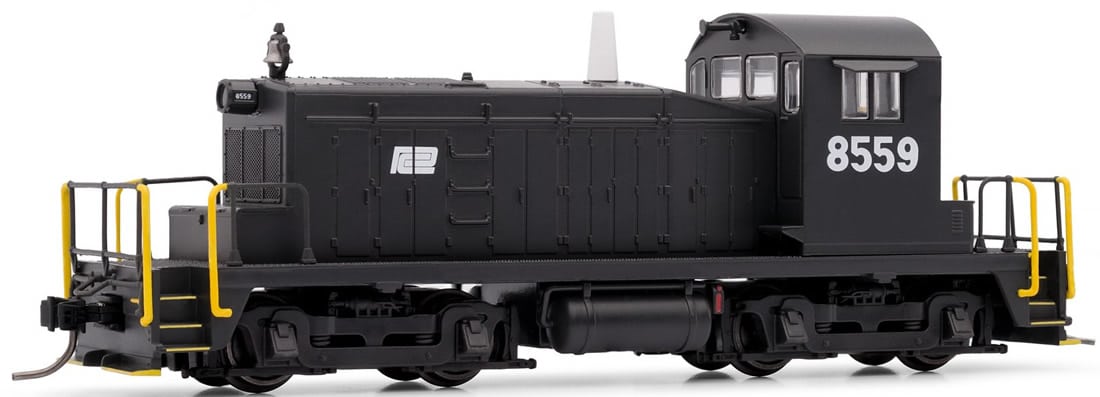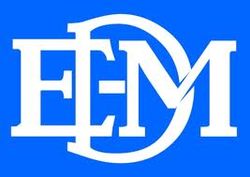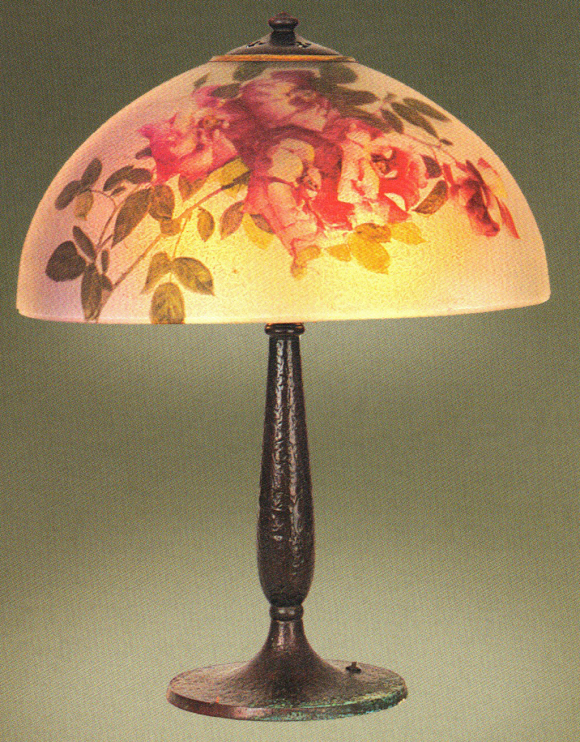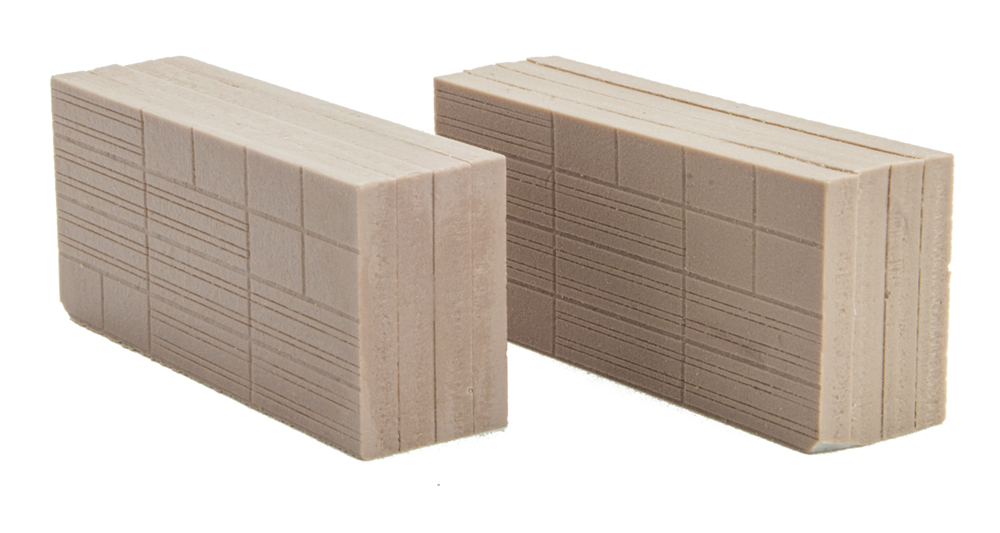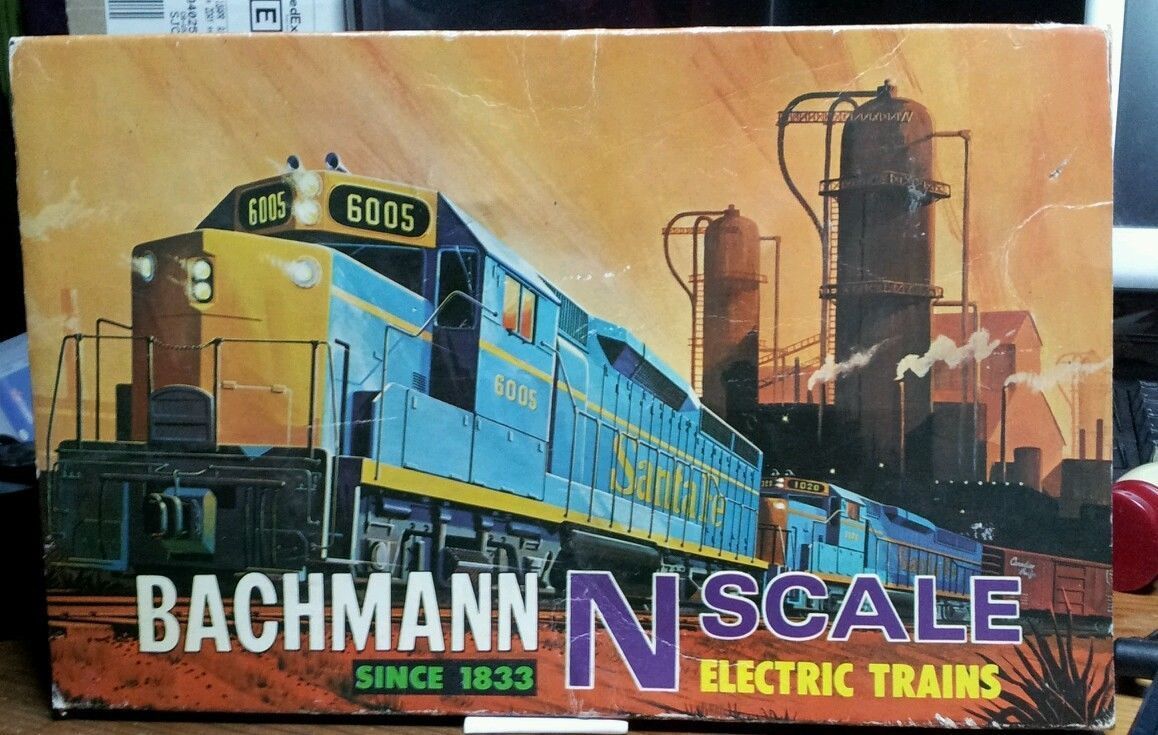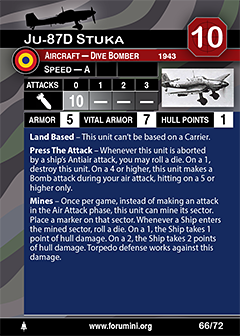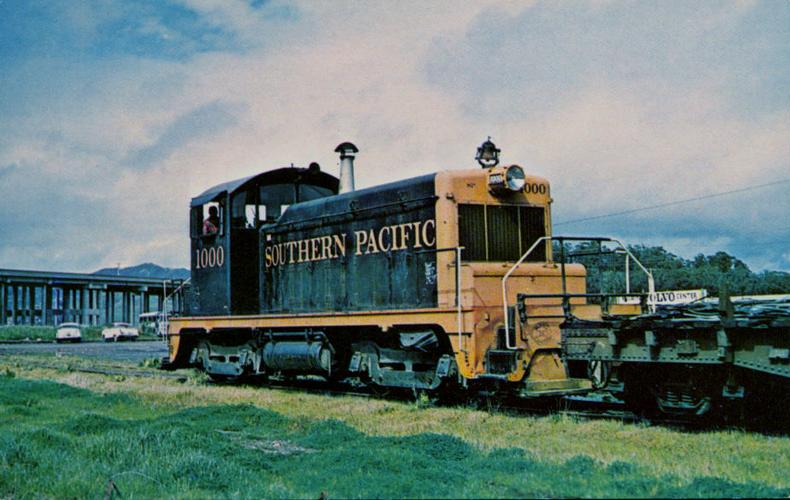Model Information: Arnold Hornby introduced this model in 2015. The following is an excerpt from Peter Wisniewski's review and is used with his permission.
Arnold is a European-based manufacturer. Most European model RR manufacturers use a fairly similar packaging method, which usually results is the jewel case's lid not fully closing over the bottom part of the case. That is because the European manufacturers include a large bundle of paperwork inside the box. There is the standard parts diagram and list of part numbers, sometimes there is a write-up of the prototype's history, a warranty card (usually in a dozen of languages), and often some sort of inspection certificate. Some of those documents are letter-size pieces of paper, folded multiple times to fit in the box. All the paperwork creates a fairly thick bundle which is usually placed under the vacu-formed plastic nest for the model. However the jewel case and the nest aren't designed to hold that extra thickness of the paperwork. Because of that the nest sticks up over the top edge of the jewel case's bottom and the lid does not fully settle down over the bottom of the case. That often leads to the lid being rather loose. Several times I have almost dropped a loco out of the box by grabbing the case by the lid's sides, forgetting that the lid is not on tight.
There seems to be a bit of a compatibility problem between the Arnold and MT couplers. I am surprised that this was not mentioned when the U25C (which was the 1st model to use this coupler) was introduced. While I have not yet tested this model on a layout, I clearly see this problem on a piece of test track on my work bench.
Overall, I am quite happy with the model's appearance and performance. Thanks to its gearing ratio of 35:1, and a coreless motor with good torque, this model has excellent slow-speed performance and realistic top speed. It was able to pull 30 40-foot Micro-Trains boxcars on a flat and tangent track, but that number will go down as the train travels through curves or up an incline. Small switching locomotives don't normally pull 30 cars in any case. But the jury is still out on the longevity of those low-end coreless motors, since they do not have replaceable brushes. Hopefully replacement motors will be available from Arnold for years to come. While this model is not 100% perfect, Arnold has a winner on their hands.
Arnold is a European-based manufacturer. Most European model RR manufacturers use a fairly similar packaging method, which usually results is the jewel case's lid not fully closing over the bottom part of the case. That is because the European manufacturers include a large bundle of paperwork inside the box. There is the standard parts diagram and list of part numbers, sometimes there is a write-up of the prototype's history, a warranty card (usually in a dozen of languages), and often some sort of inspection certificate. Some of those documents are letter-size pieces of paper, folded multiple times to fit in the box. All the paperwork creates a fairly thick bundle which is usually placed under the vacu-formed plastic nest for the model. However the jewel case and the nest aren't designed to hold that extra thickness of the paperwork. Because of that the nest sticks up over the top edge of the jewel case's bottom and the lid does not fully settle down over the bottom of the case. That often leads to the lid being rather loose. Several times I have almost dropped a loco out of the box by grabbing the case by the lid's sides, forgetting that the lid is not on tight.
There seems to be a bit of a compatibility problem between the Arnold and MT couplers. I am surprised that this was not mentioned when the U25C (which was the 1st model to use this coupler) was introduced. While I have not yet tested this model on a layout, I clearly see this problem on a piece of test track on my work bench.
Overall, I am quite happy with the model's appearance and performance. Thanks to its gearing ratio of 35:1, and a coreless motor with good torque, this model has excellent slow-speed performance and realistic top speed. It was able to pull 30 40-foot Micro-Trains boxcars on a flat and tangent track, but that number will go down as the train travels through curves or up an incline. Small switching locomotives don't normally pull 30 cars in any case. But the jury is still out on the longevity of those low-end coreless motors, since they do not have replaceable brushes. Hopefully replacement motors will be available from Arnold for years to come. While this model is not 100% perfect, Arnold has a winner on their hands.
DCC Information: Accepts a 6-pin NEM651 plug decoder.
Prototype History: The EMD SW1 is a 600-horsepower (450 kW) diesel-electric switcher locomotive built by General Motors' Electro-Motive Corporation (later Division) between December 1938 and November 1953. Final assembly was at EMD's plant at LaGrange (McCook) Illinois. The SW1 was the second generation of 3,402 cu in (55.75 L) switcher from EMD, succeeding the SC (cast frame) and SW (welded frame). The most significant change from those earlier models was the use of an engine of EMD's own design, the then-new 567 engine, here in 600 hp (450 kW) V6 form. 661 locomotives of this design were built, not withstanding diesel switcher production having been suspended between 1942 and 1945 by the War Production Board, as the 567 engines were needed elsewhere, mainly for U.S. Navy LST vessels.
From Wikipedia
Read more on American-Rails.com.
From Wikipedia
Read more on American-Rails.com.
Road Name History: 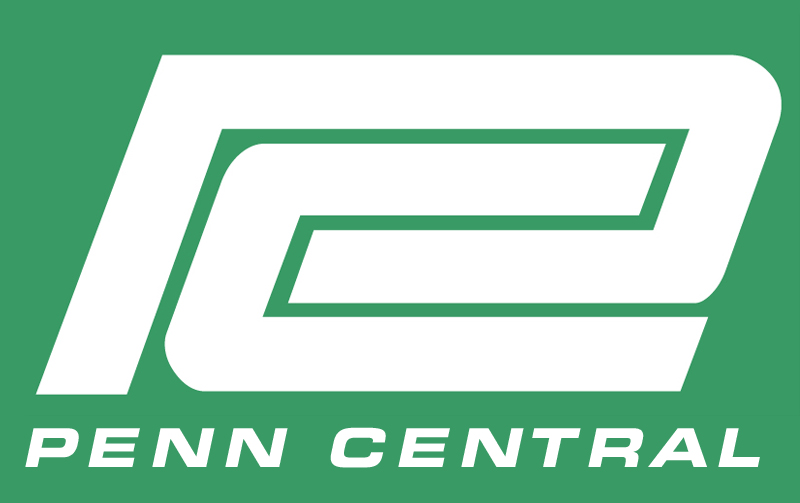 The Penn Central Transportation Company, commonly abbreviated to Penn Central, was an American Class I railroad headquartered in Philadelphia, Pennsylvania, that operated from 1968 until 1976. It was created by the 1968 merger of the Pennsylvania and New York Central railroads. The New York, New Haven & Hartford Railroad was added to the merger in 1969; by 1970, the company had filed for what was, at that time, the largest bankruptcy in U.S. history.
The Penn Central Transportation Company, commonly abbreviated to Penn Central, was an American Class I railroad headquartered in Philadelphia, Pennsylvania, that operated from 1968 until 1976. It was created by the 1968 merger of the Pennsylvania and New York Central railroads. The New York, New Haven & Hartford Railroad was added to the merger in 1969; by 1970, the company had filed for what was, at that time, the largest bankruptcy in U.S. history.
The Penn Central was created as a response to challenges faced by all three railroads in the late 1960s. The northeastern quarter of the United States, these railroads' service area, was the most densely populated region of the U.S. While railroads elsewhere in North America drew a high percentage of their revenues from the long-distance shipment of commodities such as coal, lumber, paper and iron ore, Northeastern railroads traditionally depended on a mix of services.
As it turned out, the merged Penn Central was little better off than its constituent roads were before. A merger implementation plan was drawn up, but not carried out. Attempts to integrate operations, personnel and equipment were not very successful, due to clashing corporate cultures, incompatible computer systems and union contracts. Track conditions deteriorated (some of these conditions were inherited from the three merged railroads) and trains had to be run at reduced speeds. This meant delayed shipments and personnel working a lot of overtime. As a result, operating costs soared. Derailments and wrecks became frequent, particularly in the midwest.
The American financial system was shocked when after only two years of operations, the Penn Central Transportation company was put into bankruptcy on June 21, 1970. It was the largest corporate bankruptcy in American history at that time. Although the Penn Central Transportation Company was put into bankruptcy, its parent Penn Central Company was able to survive.
The Penn Central continued to operate freight service under bankruptcy court protection. After private-sector reorganization efforts failed, Congress nationalized the Penn Central under the terms of the Railroad Revitalization and Regulatory Reform Act of 1976. The new law folded six northeastern railroads, the Penn Central and five smaller, failed lines, into the Consolidated Rail Corporation, commonly known as Conrail. The act took effect on April 1, 1976.
Read more on Wikipedia.

The Penn Central was created as a response to challenges faced by all three railroads in the late 1960s. The northeastern quarter of the United States, these railroads' service area, was the most densely populated region of the U.S. While railroads elsewhere in North America drew a high percentage of their revenues from the long-distance shipment of commodities such as coal, lumber, paper and iron ore, Northeastern railroads traditionally depended on a mix of services.
As it turned out, the merged Penn Central was little better off than its constituent roads were before. A merger implementation plan was drawn up, but not carried out. Attempts to integrate operations, personnel and equipment were not very successful, due to clashing corporate cultures, incompatible computer systems and union contracts. Track conditions deteriorated (some of these conditions were inherited from the three merged railroads) and trains had to be run at reduced speeds. This meant delayed shipments and personnel working a lot of overtime. As a result, operating costs soared. Derailments and wrecks became frequent, particularly in the midwest.
The American financial system was shocked when after only two years of operations, the Penn Central Transportation company was put into bankruptcy on June 21, 1970. It was the largest corporate bankruptcy in American history at that time. Although the Penn Central Transportation Company was put into bankruptcy, its parent Penn Central Company was able to survive.
The Penn Central continued to operate freight service under bankruptcy court protection. After private-sector reorganization efforts failed, Congress nationalized the Penn Central under the terms of the Railroad Revitalization and Regulatory Reform Act of 1976. The new law folded six northeastern railroads, the Penn Central and five smaller, failed lines, into the Consolidated Rail Corporation, commonly known as Conrail. The act took effect on April 1, 1976.
Read more on Wikipedia.
Brand/Importer Information: Founded in 1906 by Karl Arnold in Nürnberg, K. Arnold & Co. began its life producing tin toys and related items. They produced an extensive line of model ships, doll house items and other toys. In 1935, K. Arnold & Co. hired Max Ernst as their managing director. Ernst, not to be confused with the German realist artist of the same name, was a significant factor in the future of Arnold.
On Max Ernst's 1976 retirement, Arnold employed perhaps 200 to 250 people, using three facilities in the Nuernberg area. The Company continued under family control until 1995, when Arnold went into bankruptcy and was sold to Rivarossi of Italy. Rivarossi, in turn, also went bankrupt, leading to the sale of all assets to Hornby of the United Kingdom. Production is carried out in China.
From Wikipedia
On Max Ernst's 1976 retirement, Arnold employed perhaps 200 to 250 people, using three facilities in the Nuernberg area. The Company continued under family control until 1995, when Arnold went into bankruptcy and was sold to Rivarossi of Italy. Rivarossi, in turn, also went bankrupt, leading to the sale of all assets to Hornby of the United Kingdom. Production is carried out in China.
From Wikipedia
Item created by: gdm on 2016-02-01 12:28:54. Last edited by Alain LM on 2020-10-25 12:07:52
If you see errors or missing data in this entry, please feel free to log in and edit it. Anyone with a Gmail account can log in instantly.
If you see errors or missing data in this entry, please feel free to log in and edit it. Anyone with a Gmail account can log in instantly.


